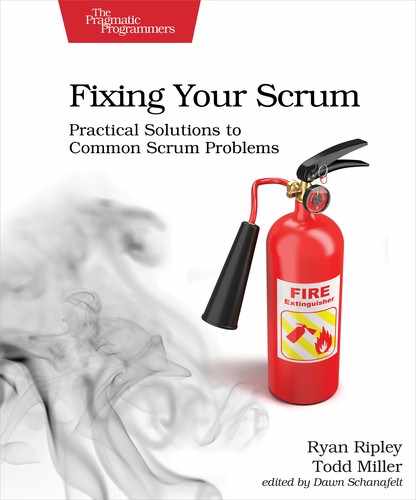The Standing Ovation
Todd was a Scrum master for a team whose organization had never done Scrum before. At the end of the sprint review, stakeholders were so impressed at seeing working software after a mere two weeks of work that they stood up, clapping and cheering for the Scrum team. The team walked out of the event with their heads held high, feeling euphoric. During the sprint retrospective, the Scrum team was still riding high off the impression they had on the stakeholders. Team members couldn’t think of many improvements to suggest because of their heightened sense of optimism. They decided that they should just keep doing what they did the last sprint.
Two sprint reviews later, the euphoria wore off quickly, as stakeholders from the accounting department asked tough questions and appeared very disappointed at the results of the increment. They questioned the decisions the team was making and demanded answers on the allocation of budget for such meager results. During the retrospective, the Scrum team was devastated. They were in shock from what had just happened and were desperate to find ways to go back to the days of applause and cheering. Just a few short weeks ago they had been heroes, but at that moment they felt like failures.
It’s important that the Scrum team set clear expectations with stakeholders as to why the stakeholders attend sprint reviews. It’s not an event designed to punish or reward the Scrum team. Rather, it’s an opportunity for the stakeholders to inspect what’s happened, provide feedback, and decide what to do next. If the stakeholders do reward or punish the Scrum team during a sprint review, it’s important for you, the Scrum master, to immediately remind the stakeholders why they’re involved in the sprint review, and to refocus their attention on the increment and what the team should do next.
This kind of scenario is a classic carrot-and-stick model: We’ll clap if you do something we like and we’ll yell if you do something we don’t. The result is a reward and punishment system that makes people fixate on chasing the reward. But if the team focuses on getting the reward, that will prevent tough conversations that need to happen in a sprint review between the Scrum team and stakeholders, for the good of the project.
A super useful book that can help you deal with this anti-pattern is Drive by Daniel Pink.[18] It contains some excellent info about what motivates human beings. You can use the lessons you learn from it in your organization. We consider Drive a must-read for all Scrum masters.
